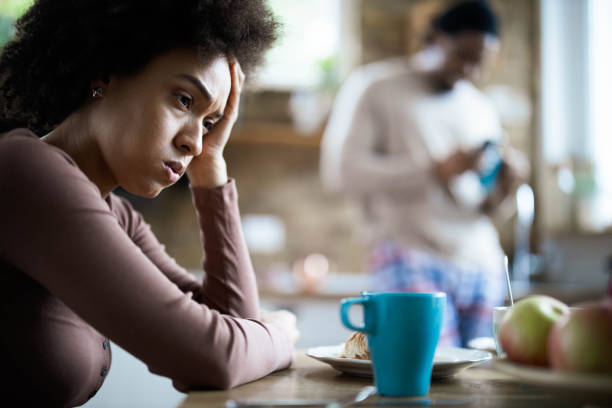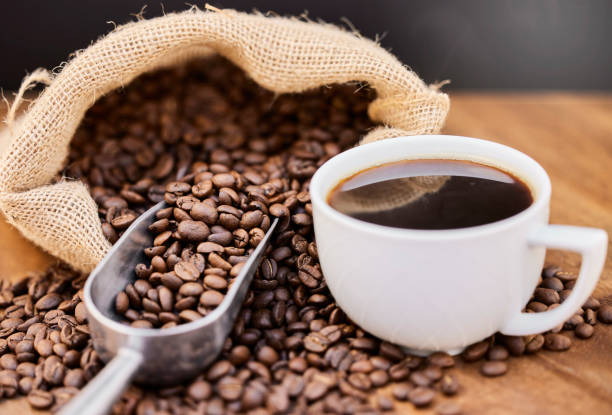Do you experience nausea after drinking coffee? Here’s why, and how to fix it!
In terms of drugs, caffeine is quite potent. Focus, vigor, performance, and even sleep quality can all benefit. However, there are some drawbacks to caffeine that most people don’t think about until they experience them firsthand. For example, the drug frequently causes side effects like nausea and headaches.
What if, however, we told you that these signs and symptoms could be easily avoided. To stop feeling nauseous after drinking coffee, continue reading.
Table of Contents
Why Do I Feel Nauseous After Drinking Coffee?
Drinking Coffee on An Empty Stomach
First, drink your coffee without food. This isn’t a problem for the majority of people, but if your system is more delicate, it could make you feel queasy. Coffee increases the production of gastric acid. This spike in stomach acid may irritate your stomach lining and cause indigestion.
Consequently, eating a little something before turning on your drip coffee maker is the best thing you can do to prevent negative reactions.
Drinking Too Much Coffee
Of course, too much coffee can have an effect on your digestive system, too. I can imagine your question: Is that even a thing?
Four to five cups per day are advised by the Food and Drug Administration (FDA). Therefore, imagine taking the final sip from cup number eleven.
Acid Reflux
Since coffee tends to increase acid production in the stomach, there’s a good chance it can trigger acid reflux. The antagonists in this scenario are caffeine and acidity. They frequently relax the area where the esophagus and stomach converge. As a result, reflux and heartburn may occur when too much stomach acid backs up through the opening.
over Caffeination
Unpleasant symptoms can actually be brought on by excessive caffeine consumption. I already mentioned that one of the effects of caffeine is that it stimulates acid production. In actuality, it stimulates the entire gastrointestinal system.
What that means is that if you’re drinking coffee to excess, the caffeine shifts your system into overdrive. At best, that could result in high energy levels. Negative outcomes, however, such as nausea or the induction of laxative effects, can appear suddenly. No one wants that to occur at work, let’s face it!
Dehydration
In addition to having laxative effects in large doses, coffee is also a diuretic. If you’re already dehydrated and you reach for a cup of coffee, chances are it’ll make you feel nauseous. Additionally, it might cause you to become even more dehydrated.
Stay as hydrated as you can; this is one of the simpler problems to solve. The negative effects of coffee consumption can be lessened by drinking lots of water. Additionally, it enhances your health and digestion.

Interactions With Medications
What if coffee has only recently started to make you feel nauseous? A new drug should be tested for interactions. Your medication may react with the caffeine, acidity, or other components in coffee.
Given that caffeine stimulates your body, it is best to avoid mixing it with other stimulants or steroids. Caffeine and some antibacterial drugs, such as Ciprofloxacin, can interact poorly.
Use caution when drinking coffee after starting a new medication. Don’t take medications with coffee, by any means. You might experience nausea or other types of abdominal distress as a result of that.
Interaction With Cortisol
Another possible reason why coffee might make you feel nauseous is the effect it has on your hormones. We know caffeine is a stimulant, and that it can give you a great boost of energy when you need it.
What you might not know is that caffeine also encourages the excretion of some hormones, specifically cortisol. The body’s stress hormone is cortisol, and we all understand the damage stress can do to your body. You might experience nausea as a result!
Avoiding excessive coffee consumption when under stress is the best course of action in this situation. It’s always a good idea to keep your cortisol levels under control.
the Smell of Coffee
Some studies have shown that the reason for this may be your body associating the smell of coffee with the negative side effects of caffeine. Do you know how after that wild night years ago, there’s just one alcoholic drink you can no longer stand the sight of? It’s the same principle.
Except for putting a clothespin on your nose, there isn’t much you can do to cure that kind of coffee aversion.
Pregnancy
Speaking of dislikes, many pregnant women who adore coffee cannot consume it. Caffeine consumption should be kept to a minimum while pregnant, of course. By doing this, the likelihood of any negative effects on the baby will be decreased. However, a lot of women claim to have grown to actually dislike the drink.
There are several causes for this. To begin with, it might be the body’s defense against ingesting something with potentially harmful ingredients.
Additionally, caffeine stimulates the gastrointestinal system, increasing the production of stomach acid. Therefore, drinking coffee may cause heartburn, acid reflux, or morning sickness symptoms. And no pregnant woman desires that!
That also teases the question, can you use a sudden aversion to coffee as an indicator of pregnancy? It’s probably best to let the appropriate medical tests handle that.
How to Prevent Feeling Nauseous After Drinking Coffee?
Consider Switching to Decaf
If you’re feeling sick after drinking coffee, it’s probably because you’re sensitive to caffeine. Anxiety, heartburn, and stomach upset are all possible effects of caffeine. The cycle of your sleep can also be disturbed. Try switching to decaf if you’re having trouble avoiding getting sick after drinking coffee.
Decaf coffee contains much less caffeine than regular coffee, making it less likely to upset your stomach or keep you up at night.
A banana can also be consumed before or right after a cup of coffee. Bananas are a good source of dietary potassium, which can help reduce the effects of caffeine on your body.
Switch the Roast
Trying coffee with a darker roast is an additional choice. Darker roasts may be less acidic and easier on your stomach because they tend to be less acidic than lighter roasts. Contrary to popular belief, lighter roasts contain more caffeine. Because the roaster did not roast it as long, it is lighter and more of the caffeine remains. Since they have been roasted for a longer period of time, darker roasts have lost some of their caffeine content.
Drink Coffee With a Meal
It can be beneficial to consume coffee with food to prevent nausea. This is due to the possibility of stomach issues when drinking coffee when hungry. Before drinking coffee, try eating something to reduce nausea. Something as small as a pastry or crackers can help to keep the stomach strong. So, if you’re feeling queasy, try having coffee with a meal.

Drink Smaller Amounts of Caffeine Throughout the Day
Since caffeine is a stimulant, drinking too much of it can have negative effects. Drinking small amounts of coffee throughout the day as opposed to a lot at once will help you avoid feeling sick. Drink plenty of water to stay hydrated, and take breaks to stretch your legs and engage in deep breathing. A visit to the emergency room is advised if symptoms continue.
Drink Caffeine-free Beverages
If you consume too much caffeine, it can cause headaches, anxiety, and nausea, among other unpleasant side effects. There are some things you can do to help prevent getting sick after drinking coffee if you’re concerned about it. First, try to cut down on your caffeine intake overall.
Second, if you start to feel unwell, drink lots of water and replenish your electrolytes. Finally, take a short stroll to help prevent dizziness. If you do begin to feel as though you are about to have a heart attack, stop drinking coffee right away and take deep breaths until the symptoms subside. Most of the time, there are no lasting effects from recovery.
Stay Hydrated
Coffee can make you feel ill if you consume it before a meal. So, it’s important to drink water first. You ought to consume at least 8 glasses of water each day to ward off illness. Coffee won’t replace the need for electrolytes and water. As a result, you should drink something to restore the balance of your electrolytes if you want to avoid dehydration. To stay hydrated, sip on milkshakes, juice, Gatorade, or smoothies.
What Are Some Alternative Beverages to Coffee?
Herbal Tea
Herbal tea has a number of advantages over coffee. Herbal teas have lower caffeine content, so you can still feel energized without getting all jittery. In order to find one that appeals to your taste, they are available in a variety of flavors. Additionally, coffee filters are biodegradable, so using a compostable filter in your Keurig machine will benefit the environment.
Decaf Coffee
Decaf coffee is coffee that has had most of the caffeine removed. Different techniques can be used to make decaffeinated coffee, but some of the more popular ones include using either chilled or boiled water. The majority of decaf coffee contains some kind of flavoring, usually vanilla or hazelnut. Decaf coffee may have a different flavor from regular coffee and is typically less expensive.
Low-acid Coffee
Longer roasting results in lower acidity in coffee, which is known as low acid coffee. Due to the removal of some of the acids during the decaffeination process, decaf coffee has low acidity. Other low acid options include cold brew and espresso. Because it lacks acidity, low acid coffee can make some people queasy. If you don’t want to drink acidic coffee, there are low-acid coffee options available.

Caffeine-free Soda
You can stay hydrated, learn about your digestive system, and avoid acid-related discomfort by drinking coffee, among other benefits, which are many. Additionally, coffee on an empty stomach can lead to nausea, heartburn, and acid reflux. You can try drinking your coffee black if you don’t like it with fake sugar, though. As a final option, choose an all-natural milk or creamer if you find the flavor of coffee to be too overpowering.
Water
It is advised to drink at least one glass of water in the morning to ensure proper hydration, which is crucial for health. Don’t use coffee as a substitute for sparkling clean water, but if you feel like you’ve drunk too much coffee, drink a few glasses of water. The rate at which caffeine leaves your system can be accelerated by drinking enough water.
Milk
For those who cannot tolerate milk products, there are numerous lactose-free coffee options available. There are many dairy-free alternatives that can be used as coffee condiments, and plant-based milk is a fantastic substitute for cow’s milk. If you are lactose intolerant, this can help you get rid of your coffee nauseous feeling.
Summary
Avoid drinking coffee on an empty stomach to prevent nausea. Limit your coffee consumption as well. Remember that you can make coffee easier to stomach by diluting it with water, milk foam, or non-dairy creamer.
Other than that, the only effective treatment for nausea brought on by coffee is time.
